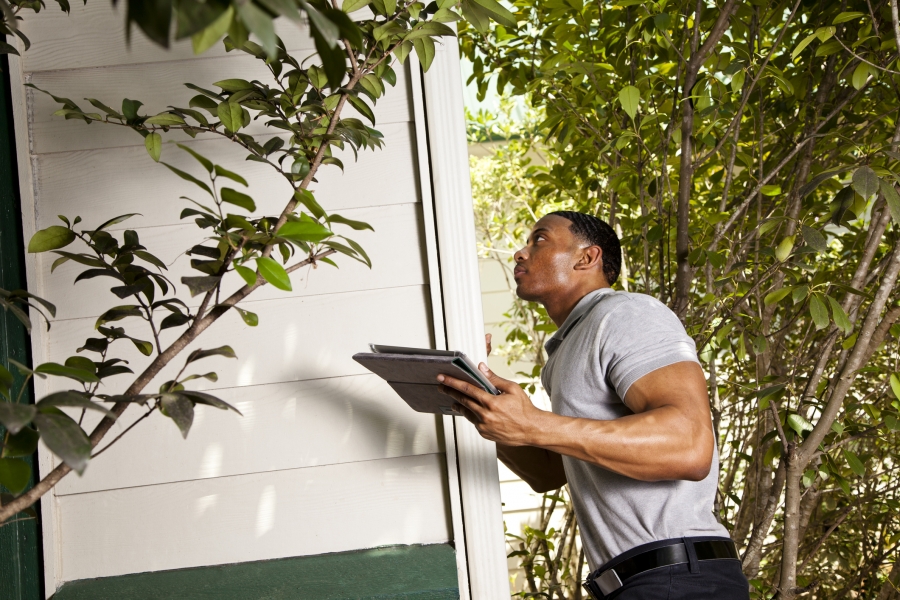Don’t skip your home inspection. Surprises are for birthday parties, not one of the biggest financial transactions you’ll make in your lifetime. An inspection means you’ll know exactly what you’re getting when you buy a home, and that knowledge is priceless.
Let’s dig into what you actually get when you order a home inspection and exactly why you shouldn’t skip.
What happens during a home inspection?
Once you’ve found your dream home and your offer’s been accepted, you should order a home inspection. For $500 or less, you’ll have a trained professional come and examine the structures and systems of your home.
Your real estate agent may recommend a home inspector, or you can ask friends and family for recommendations. The American Society of Home Inspectors also maintains a registry. However you find them, confirm that your home inspector has a stellar reputation and is appropriately licensed if your state requires it. A good spot to check is the Better Business Bureau.
At your appointment, your home inspector will walk around the house, visually checking elements like the home’s:
- Electrical systems
- Heating and air conditioning
- Plumbing
- Roofing
- Attic and basement
- Visible insulation
- Foundation
According to the Department of Housing and Urban Development, a home inspection typically takes two to three hours. When it’s done, the inspector will provide you with a written report that details what they found. It may include recommendations for major or minor repairs and items that might need to be addressed in the future.
As long as you made the sale contingent on a home inspection, you can use your inspection report to help you decide whether to proceed with the sale and, if so, whether you want to renegotiate the sale price.
8 reasons not to skip the inspection
So, why exactly is it critical not to skip your home inspection? Here are eight reasons:
- Less chance of buyer’s remorse. Even if your perfect home is less than perfect, it’s better to know exactly what you’re getting.
- Negotiation power. As long as you have an inspection contingency, you can negotiate with the seller. The seller might be willing to make repairs or lower the home price so you can make the repairs.
- Safety first. Faulty wiring, poor ventilation, steps on the verge of collapse and more could cause injuries and illnesses to you or your loved ones. A home inspection can uncover potential safety issues that need to be addressed.
- Uncover other issues. Homeowners don’t always get the required permits to put in additions. A home inspector can uncover additions that didn’t go through official channels so you can make an informed decision about whether to move forward with the sale.
- Know how much to budget for maintenance. Every home is going to need maintenance, especially homes that have been around for a few decades or more. A home inspection can’t predict the future, but you will have a better idea of what to expect in the coming months and years.
- It’s (relatively) cheap. For less than $500, in most cases, a home inspection can save you thousands. You can walk away from a potential money pit or buy with a sense of what to expect. Buying a home is expensive, but this is one area where you don’t want to skimp.
- You can’t fail. Home inspections aren’t a pass/fail proposition, so there’s no risk of failing the inspection. The home inspector won’t tell you whether to purchase the home; that’s a decision you’ll need to make based on the results.
- It’s a reality check. Let’s face it — it’s easy to fall in love with a home for superficial reasons. It could be the unique floor plan, the built-in bookcases, or the corner lot. A home inspection helps you see the house for what it really has to offer. It’s a bit like going from online dating to meeting in person — there might be a few details they left out of their Tinder profile, and you may not want a second date.
When it’s OK to skip
It’s not OK to skip a home inspection. Even if you’re buying a home as-is, it’s best to know what as-is actually is.
That said, there are some aspects of the home that aren’t addressed by a home inspection. For some of these, like potential pests, you may want to order a separate assessment. Home inspections don’t address:
- The underlying causes of any issues. For example, the report may say that the foundation isn’t sound, but it won’t say why.
- Pest control. Some states require a separate pest inspection, and some lenders may require one depending on the type of mortgage you’re using to buy your new home.
- The value of the property. Appraisals address the market value of your property, not the inspection.
- Water and soil condition. A home inspection won’t address soil quality and other environmental issues.
Depending on what’s uncovered during the inspection, you may want to bring in experts to provide an estimate of how much it will cost to address issues in your home.
The bottom line with home inspections is: Get one. You’ll sleep better at night knowing exactly what you’re buying with your hard-earned money.









